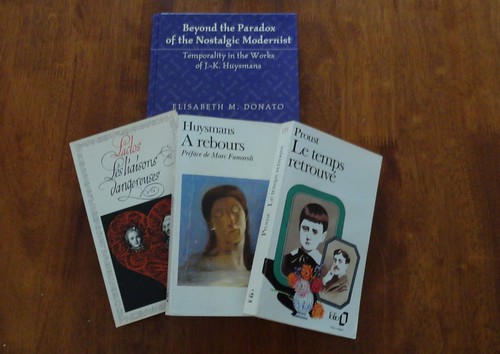Why I write in English
Born in France in 1952, I became enamored with English as a teenager because of my love for British and American rock music. Yearning to ‘get’ the lyrics of songs by the Beatles, the Rolling Stones and other great rock bands, I played catch up with my English. I read Agatha Christie novels and listened to British ‘Pirate stations’ on the radio, even though I did not understand a word their DJs said because they rattled off words at (seemingly) amphetamine-induced speed.
But my written English improved quickly. I started to use a lot of idioms, because I was able to ‘feel’ them. I had little formal knowledge of English grammar, but when I wrote in English, I just knew it was correct.
I then specialized in English in the classes préparatoires aux grandes écoles. The curriculum there was archaic – grammar translation at its best. We spent countless hours on tedious thèmes (translations of texts from French into English) and versions (translation of texts from English into French) and read a few works of English and American literature. But how can you get the meaning of a literary text (or of any text, for that matter) when you don’t understand its words?
Trips to London and a whole year spent in the US saw my English proficiency improve tremendously.
In August 1975, I married an American (who was a French teacher) and moved to this country. There were serious gaps in my linguistic and socio-cultural skills that led to a serious dissonance in my life and a certain level of conflict with those around me, especially my in-laws. It took time to admit to myself that my anxiety attacks were a symptom of my struggle to adjust to a new life and environment, compounded by my own and my new family’s expectations that I “should be done with it already”.
Two things helped me ‘acclimatize’ to my new life in the US:
1. I decided complete a B.A. in political science at the University of Delaware (credit must be given to my then husband, who encouraged me to resume my studies.) I was, by now, a ‘born again’ student and did extremely well.
2. I befriended a wonderful woman who was then a professor at the University of Delaware. She became my mentor and taught me about American history and culture (she knew zip about rock music, luckily I could fill that gap myself).
Little by little, English became my language. I wrote many papers in English and loved writing in English as much as I had once loved writing in French.
While of all this was going on – over about 20 years – my relationship to the French language became tenuous. I seldom read in French and spoke French for only a few weeks with my French relatives, when we could afford to visit them.
The straw that broke the camel’s back was when I went to France with my daughter, Claire, in 1990. My parents behaved hideously toward me and, worse yet, toward Claire, who was only four-years-old.

I immediately rejected French as the language of my family life and of my heart and soul. I had been trying to raise my daughter bilingually, but after the falling out with my parents, I stopped speaking French to her.
Later that year, I started a PhD program in French literature at the University of Pittsburgh. Over the five years, I read most works in the French literary canon. The professors always addressed me in French and many of the other students were native French speakers. I secluded my use of French exclusively to my studies.
I still love my native language. I teach it and, of course, speak it extremely well, even if I pepper it with an occasional anglicisme. Don’t take me wrong, I love French. For me, it is a language of deep pleasure, but it also carries a painful emotional baggage.
I find it much easier and more natural to express my feelings in English rather than in French. This is why I write (mostly) in English.









Hi Elizabeth, thanks for sharing this intimate insight into your life…
Thanks, Judy!
Sur la photo, je vois un livre de Proust. De nombreux anglo-saxon aiment Proust mais pourquoi ? C’est un véritable mystère pour moi !
You poor dear, being subjected to grammar translation !